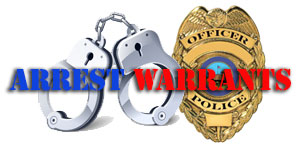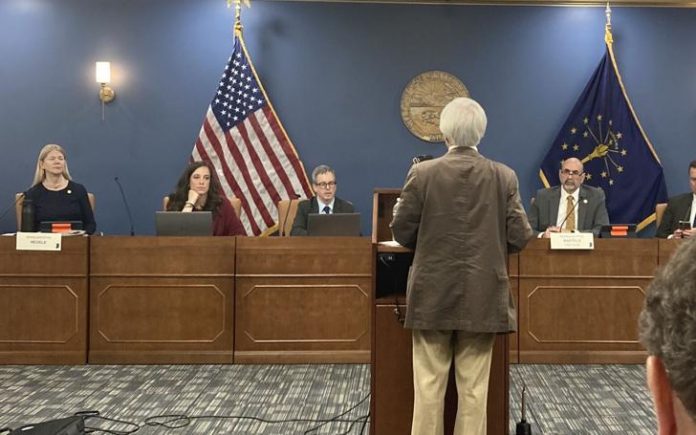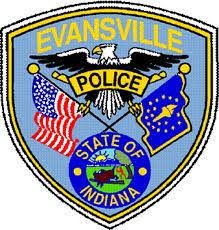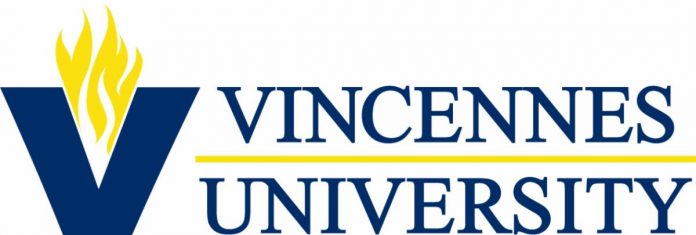Braun leads bill to increase penalties for criminals who target cops: The Thin Blue Line Act
Senator Mike Braun and Senators Ted Cruz, Ron Johnson, Marco Rubio, James Lankford, Eric Schmitt, Thom Tillis, Bill Hagerty, John Kennedy, John Hoeven, John Boozman, and Ted Budd reintroduced the Thin Blue Line Act, a bill to increase penalties for criminals who target our cops.
The Thin Blue Line Act makes the targeting, killing, or attempted killing of a police officer an aggravating factor in favor of maximum sentences. Currently this applies to federal law enforcement; the Thin Blue Line Act would apply this to local and state police as well.
Police are under attack in America. In just the first month of this year, thirty-four police officerswere shot in the U.S. Â As Law Officer reports, the number of officers shot in line of duty has more than doubled since 2020.
Senator Braun decided to take the lead in re-introducing the Thin Blue Line Act in the 118thCongress after Indiana officer Noah Shahnavaz was killed by a career violent criminal who had previously shot at Indianapolis police and struck a police cruiser multiple times during a chase, but ended up back on the streets after serving 13 years of a 25 year sentence.
Indiana has had several police officers killed or injured in the line of duty in recent years, including FBI task force officer and 30-year veteran of the Terre Haute Police Department Greg Ferency who was killed in July 2021, and 28-year old Richmond officer Seara Burton who was shot by a violent criminal during a traffic stop and died 5 weeks later.Â
This bill has the support of all four major police organizations in Indiana, as well as the support of several national police organizations.
Senator Braun speaks on the Senate floor about the Thin Blue Line Act
Watch on YouTube | Download for broadcast – 1080p | Remarks Transcript
STATEMENTS OF SUPPORT:
“There is a war on our cops, and it’s time we raise the price of targeting them. The Thin Blue Line Act will make targeting or killing a police officer in a violent crime an aggravating factor in favor the harshest penalties we have,†said Senator Braun. “President Biden said in his State of the Union speech last week that police officers put their lives on the line every day, and that we ask them to do too much. I agree, and as cities continue to encourage crime by going easy on violent criminals, I’m calling on President Biden to announce his support for this legislation to increase the penalties for those who try to kill cops.â€
“All that Noah ever wanted to do is help others. Society has been robbed of the many positive impacts he would have had on our world. It is time that we the people demand stiffer penalties for evildoers who commit violent acts against heroes called to serve and protect. Thank you, Senator Braun, for leading this charge.†– Laurie and Matt Shahnavaz, parents of Officer Noah Shahnavaz
 “Our first responders are heroes make a choice, each and every day, to put themselves in harm’s way to keep our communities safe. This important legislation will put criminals on notice that if they target our police officers, firefighters, and first responders, they will pay the highest penalty the law allows.†– Senator Cruz
 “Law-enforcement officers put their lives on the line every day to protect the American people,†said Senator Hagerty. “We must ensure that law-enforcement officers are protected and that criminals who attempt to hurt them are held accountable. This legislation will make sure that targeting or killing a local police officer is met with the harshest punishment available.â€
“Our brave men and women in law enforcement put their lives on the line every day to keep us safe. With crime reaching record highs across the country and the increase in officers killed in the line of duty, it is important to prioritize the safety of our law enforcement and our communities. I’m proud to join my colleagues in this effort to fight back against Democrat soft-on-crime policies and deter criminals from targeting law enforcement.†– Senator Johnson
“Each day, law enforcement officers across our country risk their lives to protect and serve our communities,†Senator Boozman said. “Unfortunately, more criminals are targeting them with violence because of their commitment to enforce the law and maintain order. I’m proud to join my colleagues to make it clear we will always stand up for the men and women behind the badge and will not tolerate attempts to attack or intimidate them.â€
“Every day, police officers put their lives on the line to protect their fellow Americans. The least we can do is make sure our laws protect law enforcement from those who target them.†– Senator Rubio
“Law enforcement and first responders put their safety and well-being on the line in order to protect our communities and respond to a range of dangerous situations,†said Senator Hoeven. “It is unconscionable that these public servants would be the target of violent crime, and our legislation would help ensure criminals face appropriate penalties for such an offense.â€
“Law enforcement officers go to work every day not knowing whether they’ll return home safely to their families,†said Senator Tillis. “I am proud to introduce this legislation to increase the penalty for targeting our brave men and women in law enforcement, and will make criminals think twice before targeting them.â€
“The men and women of law enforcement protect and serve their communities every day, and put their lives on the line to do it. Anyone who targets them deserves to pay the maximum punishment. Thank you to Senator Braun for leading this critical bill.†– Senator Budd
“Last year, America lost 331 police officers in the line of duty, and has already lost another 34 in January 2023 alone. As our state and local law enforcement officers continue to experience unprecedented acts of violence against them, criminals perpetrating this violence must be held accountable. The Thin Blue Line Act would enshrine into law the same standard of justice that is already afforded to federal law enforcement. This Act would guarantee this standard to our state and local officers when they are operating in coordination with federal partners or when they are on federal property. This deterrent measure and added layer of prosecutorial protection is a must, which is why we support the Senate’s re-introduction of the Thin Blue Line Act, and we hope it passes with bipartisan support.†– Pam Bondi, former Attorney General of Florida, and Matt Whitaker, former Acting Attorney General of the United States, Co-Chairs of the America First Policy Institute’s Center for Law and Justice
STATEMENTS OF SUPPORT FROM LAW ENFORCEMENT GROUPS:
“The Indiana Fraternal Order of Police, representing 13,000 men and women in Law Enforcement, stand behind this legislation 100%. Thanks to Senator Braun for standing with and supporting those on the very front lines of public safety and recognizing the ultimate sacrifices that are made far too often and in increasing numbers. There should be a strong message sent to those who target those in our profession simply because of the uniform or the badge that they wear. We urge passage.†– Bill Owensby, President, Indiana Fraternal Order of Police
“According to the National Law Enforcement Memorial Fund, 64 police officers in the United States were shot and killed in 2022. That is a 21% increase in the number of officers killed by gunfire compared to the average of firearms-related officer deaths between 2010-2020. More troubling, of those 64 officers murdered, 11 were killed in ambush-style attacks. The Thin Blue Line Act adds protections for state and local officers, consistent with those afforded our federal counterparts, should our members be targeted for merely doing their job. Adding this serious deterrent is important as violent attacks on law enforcement officers are on the rise. We support the Thin Blue Line Act and thank Senator Braun for continuing to fight to help protect our members.â€Â – Indiana State Police Alliance
 “Hundreds of law enforcement officers and other first responders across this nation are being shot or violently assaulted each year. In a growing trend, first responders are even being targeted merely because of their profession. Without legislation such as The Thin Blue Line Act, the persistent increase in violence will remain unbridled. It is imperative that criminals be sent a clear message that these acts are unacceptable and will be met with the most severe punishment. The Indiana Sheriff’s Association strongly supports this legislation.â€Â – Sheriff Randy Retter, President, Indiana Sheriffs Association
 “The Indiana Association of Chiefs of Police strongly supports Senator Mike Braun’s reintroduction of the “Thin Blue Line Act” which would enhance penalties against those who choose to commit lethal acts of violence against law enforcement officers, firefighters, and other first responders acting in the course of their duties. This Act would extend the same standard of justice to local first responders serving in their communities that is afforded to our federal counterparts. While this Act may not prevent an attack on our first responders, it will provide comfort to the families that are left behind in knowing that justice can be delivered in the wake of those senseless acts of violence.” – Chief Kyle Prewitt, Plainfield Police Department / Indiana Association of Chiefs of Police, Government Relations Chair
 “With the unprecedented targeting of law enforcement professionals, both inside and outside of our nation’s prisons, the Thin Blue Line Act has become an essential measured response now more than ever. The men and women that serve America deserve the protections of the severest of penalties as the ultimate deterrent. It is unfathomable to imagine a society without those who are willing to sacrifice themselves to protect everyday Americans. Reality is that evil does exist in our nation and an attack on those that protect others is an assault on our morals and civility. The National Prison Council is thankful that Senator Braun is leading the effort to protect those that protect America.” – Shane Fausey, National President, National Council of Prison Locals
THE THIN BLUE LINE ACT is sponsored by the following police groups:
- Indiana Fraternal Order of Police
- Indiana Sheriff’s Association
- Indiana Association of Chiefs of Police
- Indiana State Police Alliance
- National Fraternal Order of Police
- National Troopers Coalition
- National Association of Police Organizations
- National Council of Prison Locals
- Voices of JOE
ABOUTÂ THE THIN BLUE LINE ACT:
- When a jury in a federal case considers whether to impose the death penalty, the jury must consider certain “aggravating” factors.
- Current law states that if the murder victim is a federal law enforcement officer or federal prosecutor, this fact shall weigh as an aggravating factor in favor of the maximum penalty.
- The Thin Blue Line Act provides the same level of justice to local law enforcement officers, prosecutors, and first responders.
- It also enhances the penalty when a defendant targets a law enforcement officer, prosecutor, or first responder solely because that individual has chosen to protect and serve.
Indiana students to get free FAFSA filing help at College Goal Sunday, February 26
Evansville, IN – Financial aid professionals from all across Indiana will be volunteering at Ivy Tech Community College Evansville and 36 other sites to help collegebound students and their families open the door to financial aid during College Goal Sunday. The event is set for 2 p.m. (local time), Sunday, Feb. 26.
The free program assists Indiana students in filing the Free Application for Federal Student Aid (FAFSA). One does not have to be an Ivy Tech student or potential student to attend.
The FAFSA form is required for students to be considered for federal and state grants, scholarships, and Federal student loans at most colleges, universities, and vocational/technical schools nationwide. The FAFSA MUST be filed by the State of Indiana priority deadline of April 15 to guarantee state aid for those that qualify. One of the reasons College Goal Sunday is so important is because many families perceive the form to be too complicated and time consuming to complete. In less than one afternoon during College Goal Sunday, students and their families can get free help and file the form.
“Indiana is first in the Midwest and fifth in the nation in providing need-based financial aid to Hoosier students. But students must file the FAFSA to claim those funds, which go a long way in making the costs of college manageable for students and families,†said Indiana Commissioner for Higher Education Chris Lowery. “If you are considering education beyond high school, filing the FAFSA should be your first step, so you don’t leave money on the table. You don’t have to go it alone, either, as College Goal Sunday offers one-on-one help from financial aid experts.â€
Now in its 34th year, College Goal Sunday has helped more than 94,000 Indiana students and families complete the FAFSA properly and on time. College Goal Sunday is a charitable program of the Indiana Student Financial Aid Association (ISFAA).
What students should bring
Students should attend College Goal Sunday with their parent(s) or guardian(s), and parents and students should bring their completed 2021 IRS 1040 tax returns, W-2 Forms and other 2021 income and benefits information. Students and parents are encouraged to apply for their U.S. Department of Education FSA IDs at studentaid.gov before logging in at the event.
Volunteers will walk through the online form line-by-line and answer families’ individual questions as needed. All sites offer FAFSA online capabilities and many have Spanish interpreters. A complete list of sites is available at CollegeGoalSunday.org.
Attendees may win a scholarship from College Goal Sunday
Students may also win one of five $1,000 scholarships. Students who attend College Goal Sunday and submit a completed evaluation form will automatically be entered in a drawing for a $1,000 scholarship. The winners will be notified in spring and scholarships will be sent directly to the higher education institution selected by the winning students.
Â
21st Century Scholars benefit
21st Century Scholars are income-eligible students who sign a contract in the seventh or eighth grade promising they will graduate from high school, meet grade point requirements, fulfill a pledge of good citizenship, and apply for college financial aid. Upon high school completion, Scholars who have fulfilled the commitment and demonstrate financial need receive state funds to help cover their college tuition and fees for up to eight semesters at eligible Indiana public colleges or an equal dollar amount at eligible Indiana private colleges. To fulfill their pledge scholars must submit a completed FAFSA form on time, and College Goal Sunday can help.
Marijuana decriminalization gets rare committee testimony—but no vote
In a rare and almost unprecedented move Wednesday, a standing committee in the Indiana General Assembly heard testimony on legislation that would decriminalize possession of small quantities of marijuana.
The Indiana House Courts and Criminal Code Committee heard testimony on House Bill 1297, authored by Rep. Heath VanNatter, R-Kokomo. The bill would decriminalize the possession of two ounces or less of marijuana.
Although similar bills have been introduced in increasing numbers in past legislative sessions, not one has received a hearing. Most states have passed legislation to decriminalize possession of marijuana for either recreational or medical use, including Illinois, Michigan and Ohio.
However, the committee didn’t vote on the legislation Wednesday. Committee Chair Wendy McNamara, R-Evansville, said she believed the discussion was needed but added legislators would not be voting on the bill during the 2023 session.
McNamara allowed those testifying in support or in opposition a total of 30 minutes each to speak. Following this, the committee was allowed to pose questions to those who testified. The committee closed with a discussion on the issue.
VanNatter did make note of an amendment he made to the bill, which would set limits for edibles and an age restriction of 21 or over for decriminalization to apply.
“I’ve got three reasons why I support the decriminalization of cannabis,’’ said Rep. Mitch Gore, D-Indianapolis.
“The first is that I’m a third-generation tavern operator. … And you know that I would serve my clients three Long Islands, which was our limit, and then they would go to their car and smoke a bowl and all of a sudden that’s what made them a criminal.
“The second reason is I have Crohn’s disease. I’ve missed a few session days. I’m in the middle of a flare up right now. It causes inflammation. A lot of abdominal pain, lack of appetite, which you can’t tell from looking at me and, you know, there’s a natural product that happens to fix all three of those things. Now, I never consumed a cannabis product. My current employer strictly prohibits it, which is fine. But I know a lot of people with Crohn’s or other inflammatory bowel diseases, cancer, PTSD, the list goes on and on, who would receive a lot of benefit from this.
“And the third reason is, I’m a law enforcement officer and I just had a bill heard, I’m very grateful for that. We heard testimony about how criminals are attaching devices to their run-of-the-mill hand guns that make them fully automatic. They’ll empty a 33-round magazine in less than three seconds. That’s what officers are dealing with in the field. I don’t think they care about two ounces or less of cannabis.’’
Several testified in favor of HB 1297, including Dr. Richard Feldman, legislative chair of the Indiana Academy of Family Physicians, former Indiana state health commissioner and a family physician.
“The Academy does support, clearly, the decriminalization of marijuana for personal use,’’ he said. “We recognize the benefits of intervention and treatment as is indicated for the use of marijuana rather than incarceration for both adults and youth.
“Marijuana is not a hard drug. It’s not a narcotic and certainly safer than alcohol and tobacco. It shouldn’t be legally treated accordingly. There is no evidence that marijuana is a gateway drug any more than alcohol. …
“Most importantly, from a broad public health perspective, marijuana-related convictions and the resulting marginalization and negative consequences are not justified, from either moral or costs to society standpoint. Decriminalization does not result in an increased use, including youth, and is supported by multiple medical professional societies.â€
Among those testifying in opposition was Barbara Rosenberg, legal counsel for the Indiana State Police.
“I do understand there was an amendment in this bill that raised the age position … which is helpful, but there’s still concerns about anyone having access to (marijuana)’’ she said. “People can grow this product in your backyard or have that ability and with that comes the concern the ability to use prior to driving on our roads, which is a big policy issue. … We are concerned that there will be an increase in traffic accidents and fatal accidents on the road.â€
Xain Ballenger is a reporter for TheStatehouseFile.com, a news website powered by Franklin College journalism students.
American Cancer Society advocates for $2 tax increase on cigarettes
The American Cancer Society (ACS) is asking for a $2 tax increase per pack of cigarettes in Indiana.
The ACS held a luncheon on Thursday at the Indiana Statehouse for the annual Cancer Advocacy Day. Speakers at the event included cancer survivors, advocates and volunteers.
Although the group’s main objective was to accomplish the $2 tax increase, which speakers said would generate over $370 million for the state, it also asked for a parallel tax on all other tobacco products, an increase in funding for tobacco prevention and treatment, and an increase in funding for cancer research.
Cancer survivor, volunteer, and tobacco treatment specialist Andrea Bauer said 70% of Hoosiers who smoke want to quit but may need help.
“As a tobacco treatment specialist, I’ve learned that we need more of us and we need to ensure that everyone has access to products to help them quit. The majority of tobacco users want to quit but don’t know how or where to start,†Bauer said.
“Many have not been successful, so they chalked it up to ‘quitting is never going to happen.’ Tobacco treatment specialists provide help with the how and the where to begin the journey to end tobacco use and are therefore a critical resource for those wanting to quit, as well as medical providers..â€
Cancer survivor Jeff Slinker spoke as well.
“We need more money for cancer research because cancer, like life, is not fair,†he said.
The advocacy day ended with Indiana ACS grassroots manager Allie Kast addressing the crowd.
“We have done so much, and we have come so far over the past few years. I can’t wait to see the achievements we as advocates and legislators together have this session,†Kast said.
Xain Ballenger is a reporter for TheStatehouseFile.com, a news website powered by Franklin College journalism students.
December and January Detective of the Month
Sergeant Arbaugh and Detectives Vancleave, Sides, and Richardson were selected for Detectives of the Month for December 2022 for their investigation involving a stolen vehicle and theft of an ATM machine resulting the arrest of four men connected to a group committing these crimes across the country.
On December 15th, Detectives were notified that an attempt was made in Mt. Vernon, IN to steal an ATM from a bank. A stolen truck was utilized in the attempt. Based on experience, Sergeant Arbaugh and his Detectives recognized that this type of crime is usually conducted by criminal gangs from out of state, is preceded by the theft of a heavy-duty pickup, and usually results in extensive financial loss.
Detectives learned that a 1999 Ford F350 was reported as stolen from an East-side apartment complex the same day. Video from the apartment complex showed that a white Toyota Camry rental car was involved in the theft of the truck. A video surveillance search confirmed the truck had been on Green River Road in the vicinity of several financial institutions. Detective Richardson contacted the car rental company and obtained the renter’s information. He then contacted Houston PD, the jurisdiction from which the car was rented, and found that the renter had known gang associates.
Sergeant Arbaugh shared the information with other officers and ATU/FCU detectives looked for the stolen truck. Detective VanCleave located it at another east-side apartment complex on the early evening of December 15th. He also reviewed security video from the complex that showed several males with the Camry previously believed to be involved. Sergeant Arbaugh coordinated with Patrol and the Street Crimes Unit and surveillance was conducted.
Shortly after midnight on December 16th, the suspects were observed returning to the truck briefly and appeared to prepare it for an ATM theft attempt. The suspects left in the Camry and the decision was made to conduct a felony stop on Green River Rd. Four suspects were detained and interviewed at EPD Headquarters by Detectives Sides and Richardson. Evidence was recovered from the stolen truck and the Camry that also implicated the suspects in the Mt. Vernon incident. One suspect admitted that the car was rented for him by his girlfriend.
Sergeant Arbaugh and Detectives Vancleave, Sides and Richardson should all be commended for a job extremely well done. The coordination of this detail resulting in these arrests was nothing less than impressive. Their efforts are a positive reflection of the entire agency
Detective Sides has been selected as Detective of the Month for January 2023 for his impressive investigation into thefts of catalytic converters and the arrest of a suspect in multiple cases.
In early January, Detective Sides began an investigation into a spree of catalytic converter thefts that had occurred at the Dream Center, a Nursing Home and other well-known Evansville businesses. Eight other thefts had occurred in the city over the past few months, but Sides noticed that the most recent spree was different. At that time, Sides did not have enough evidence for an arrest, having only obtained a video of a Chevrolet Avalanche with false plates being driven by a man whose covered face concealed his identity. Detective Sides adamantly refused to give up and rallied the assistance of other detectives, CSU and motor patrol officers.
On January 13th, Detective Sides conducted an after-hours late-night detail with other detectives using all of the best information systems and technology available. Although no arrest was made that night, he saw that on January 19th, the suspect was back in Evansville, driving the same Avalanche. Detective Sides directed motor patrol to Weinbach Avenue, where the suspect was stopped. The driver, Matthew Gunn, had license violations but he insisted he was being harassed for no reason and requested to speak to a Sergeant. Due to his uncooperative nature, Detective Sides decided to forego the interview and instead, the suspect was cited and the car was towed. During a routine inventory of the Avalanche, officers found a reciprocating saw, which they documented as property. A few days later, Gunn retrieved his Avalanche and began traveling great distances throughout southern Indiana and Kentucky. Detective Sides coordinated with investigators in multiple counties in both States to monitor the suspect’s whereabouts. On January 31st, he noted that Gunn had been in the area of a catalytic converter theft in Evansville. Detective Sides discovered that he had taken the stolen converter to an out of town location in order to sell it. Detective Sides went to this location, retrieved the converter and matched the model cut marks with the damage done to the victim’s car. Later that same day, he enlisted the help of motor patrol and stopped Gunn again on Fares Avenue where he took him into custody safely and without force. Gunn was surprised to learn that he was being arrested for the thefts because he had his face covered and did not feel he would be identified. Although Gunn covered his face during the thefts, Sides matched his boots and clothing to recovered surveillance video.
During an interview with Gunn, he admitted to selling over 100 catalytic converters to finance his addiction to heroin and methamphetamine. He often sold the converters using fraudulent paperwork. We believe approximately 10 of the converters were stolen in Evansville and multiple others were stolen from other counties in southern Indiana and Kentucky
HOT JOBS
|
|
|
Vincennes University and Vincennes University Jasper to provide free help on College Goal Sunday
VINCENNES, Ind., February 15, 2023 – Vincennes University and Vincennes University Jasper are providing prospective students and their families assistance in filling out the Free Application for Federal Student Aid (FAFSA) form during College Goal Sunday on Feb. 26, 2023.
College Goal Sunday is a free event that helps students of all ages and families complete and file the FAFSA form. The FAFSA is one of the most important steps in opening the door to financial aid.
The Vincennes Campus College Goal Sunday starts at 2 p.m. (ET) in Room 132 of Updike Hall – Center for Science, Engineering, and Mathematics in the SEM Learning Lab. The VUJ College Goal Sunday begins at 2 p.m. (ET) in the Jasper Campus Classroom Building.
The FAFSA is a student’s gateway to financial aid. The application is required for students to be considered for federal and state grants, scholarships, and federal student loans at most colleges, universities, and vocational/technical schools nationwide. The FAFSA must be filed by the State of Indiana priority deadline of April 15 to guarantee state aid for those that qualify.
Volunteers will walk individuals through filling out the form and answer students’ and families’ individual questions.
What to bring?
Students should attend College Goal Sunday with their parent(s) or guardian(s), and parent(s) should bring completed 2021 IRS 1040 tax returns, W-2 Forms, and other 2021 income and benefits information. Students who worked should also bring their income information. Students 24 years of age or older may attend alone and bring their completed 2021 IRS 1040 tax return, W-2 Form, or other 2021 income and benefits information. Students and parent(s) are encouraged to apply for their U.S. Department of Education FSA IDs at studentaid.gov before logging in to the event. Volunteers will walk through the online form line-by-line and answer families’ individual questions as needed.
Attendees may win a scholarship from College Goal Sunday
Students may also win one of five $1,000 scholarships. Students who attend College Goal Sunday and submit a completed evaluation form will automatically be entered in a drawing for a $1,000 scholarship. The winners will be notified in spring, and scholarships will be sent directly to the higher education institution selected by the winning students.
21st Century Scholars benefit
21st Century Scholars are income-eligible students who sign a contract in the seventh or eighth grade promising they will graduate from high school, meet grade point requirements, fulfill a pledge of good citizenship, and apply for college financial aid. Upon high school completion, Scholars who have fulfilled the commitment and demonstrate financial need receive state funds to help cover their college tuition and fees for up to eight semesters at eligible Indiana public colleges or an equal dollar amount at eligible Indiana private colleges. To fulfill their pledge scholars must submit a completed FAFSA form on time, College Goal Sunday can hel











